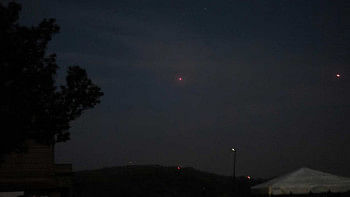Draft cyber ordinance gets a scrubbing

When the new cyber protection law comes into effect, a majority of the cases filed under its predecessors -- Digital Security Act and Cyber Security Act -- will automatically be dismissed.
Defamation, cyberbullying, and hurting of religious sentiments, among others, will be decriminalised, said the ICT Division secretary and the division's policy adviser at a press conference held at the ICT Tower yesterday while unveiling the amended version of the draft Cyber Protection Ordinance.
On December 26, 2024, the cabinet had approved the draft, but the draft drew flak from different quarters as it retained much of the controversial provisions of its predecessors.
At the press conference, Secretary Shish Haider Chowdhury said the government has scrapped nine provisions in the draft Cyber Protection Ordinance that were remnants of the DSA and the CSA.
These provisions criminalised, among others, defamation, cyberbullying, "hurting of religious sentiments", and allowed for search and arrests without warrants.
Even though vague wording like "hurting of religious sentiments" was removed from the new draft, it, however, includes a provision criminalising the dissemination of content that incites hatred among religious and ethnic communities.
"Hate speech will be defined as per the Penal Code," said Faiz Ahmad Taiyeb, the policy adviser (ICT Coordination & Reform) of the ICT Division.
The Daily Star obtained data from Centre for Governance Studies' DSA Tracker and found that 44 percent of the cases filed under the DSA for "hurting religious sentiment" were against the religious minorities, particularly the Hindus.
"We wanted to ensure that no political government can abuse this law to target anyone. However, no matter how foolproof a law is, if the political equilibrium and political system do not amend itself, all laws can be abused," said Taiyeb.
The new draft mandates that the government discloses any content it blocks.
"We ensure full transparency. We can only request the tech giants to block content. We cannot take down content ourselves. If the tech giants block or remove any content, the government must disclose what content was blocked," said Taiyeb.
According to the new draft, once a case is filed and it goes to court, the judge can dispose of the case even before the investigation stage.
The new draft has narrowed the scope for arrests without a warrant only to cases in which critical information infrastructure of the country is under threat.
The latest draft also criminalises sexual harassment online, and specifically mentions blackmail, revenge porn, and targeting of minors. The fines for committing those crimes go up to Tk 20 lakhs, and carries a three-year jail term.
The new law also criminalises online gambling with a jail term of two years and a Tk 20 lakh fine.
The law guarantees access to the internet as a right for every citizen.
The ICT Division secretary said they started drafting the ordinance to prevent a vacuum arising from the repeal of the CSA.
Taiyeb said the ordinance would be turned into an act by the political parties and that they would have the full power to amend and improve the law.

 For all latest news, follow The Daily Star's Google News channel.
For all latest news, follow The Daily Star's Google News channel. 








Comments